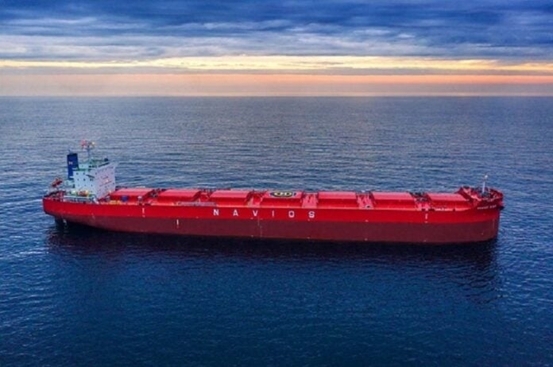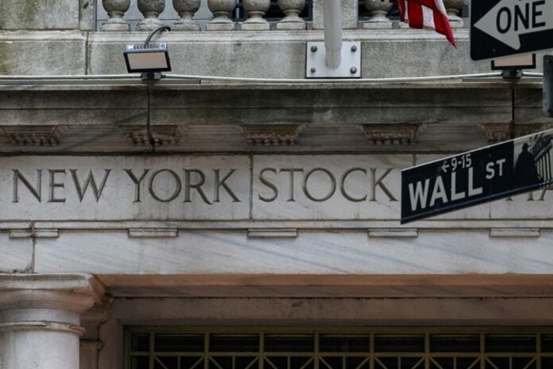By Antonis Tsimplakis

The Scandinavian bond market is rapidly evolving into an important alternative financing resource for shipping companies, with a strong Greek presence.
A key player in the most recent move is Angeliki Frangou, who through Navios South American Logistics (NSAL) is raising 400 million US dollars from investors.
Navios
NSAL, a logistics provider operating in South America, completed its first issuance in the Scandinavian market with a yield close to 9%, a rate set by the bond coordinators Arctic Securities and Fearnley Securities. According to analysts, the strong interest—mainly from large institutional investors—demonstrates the dynamism of the Scandinavian market as well as the trust in Angeliki Frangou’s name.
The proceeds from the issuance will be used to repay existing bank loans, partially repay an existing shareholder loan, and for general corporate purposes.
Navios Logistics, active in the Hidrovia of South America, operates terminals in Uruguay and Paraguay, as well as a fleet of barges. In 2023, its revenues amounted to 139.6 million US dollars from port operations, 117.7 million dollars from barges, and 53.6 million from inland transportation. The company was founded in 2007 following a merger with the Horamar Group, which owned the largest bulk cargo transshipment terminal in Uruguay. Since 2023, Frangou has taken full control.
Contships
Frangou’s move was followed a similar action by shipowner Nikolaos Pateras and Contships Logistics, which in January 2025 issued bonds on the Scandinavian market worth 100 million with a 9% interest rate, attracting the interest of major institutional investors.
Contships has evolved into a global leader in the management of feeder containerships (900–1,500 TEUs), while the bond proceeds have strengthened its fleet renewal and expansion plan.
Seanergy
Seanergy Maritime Holdings Corp., owned by Stamatis Tsantanis, is also moving in the same direction, as it is exploring the issuance of a four-year unsecured bond of 100 million US dollars. The company has been in contact with investors since late March, aiming to improve its financing terms and expand its fleet.
Seanergy has been listed on the Nasdaq since 2008 and has a capitalization of 145 million euros, focusing on dry bulk. The purpose of the issuance, according to the company, is to refinance existing debt on more favorable terms and to strengthen investment plans, focusing on the company’s fleet.
Diana Shipping
Diana Shipping was one of the first Greek shipping companies to approach the Scandinavian market as early as 2018, with a 100 million issue.
In 2024, the company returned with a new 150 million issue, with a five-year term and a yield of 8.75%, to repay a previous bond of 125 million US dollars, maturing in 2026.
The company’s founder, Symeon Palios, recently stated that “the forms of financing have multiplied – bonds, leasing, warrants – giving companies broader access to capital with greater flexibility.”
Upward trajectory
The success of Greek issuances has strengthened the position of the Nordic high-yield bond market as an alternative and reliable financing vehicle.
Other companies such as Ofjell, Wallenius Wilhelmsen, Teekay LNG Partners and Ship Finance International have also been active in the market, confirming that Norway is becoming a global hub for shipping financing through bonds.
The Greek trend of shipping spin-offs on Wall Street

It is not just a trend; it is a strategy. Greek shipowners are following the spinoff policy for their listed shipping companies on the US stock markets.
Approximately one in three (nine out of 31 in total) shipping companies of Greek interests, whose shares are traded on the New York Stock Exchange (NYSE – Nasdaq), are the result of a business strategy of creating spinoffs.
The latest example is Rubico Inc., which was founded as a spinoff from the listed shipping company Top Ships Inc, owned by Evangelos Pistiolis, and received the “green light” to list its common shares on the Nasdaq stock market.
In addition to Rubico, three other significant spinoffs were recorded this year alone.
Specifically, the listing of Robin Energy Ltd. was announced on the New York Stock Exchange, a subsidiary of Toro Corp., interests of Petros Panagiotidis.
Shortly afterwards, Costamare Inc, owned by Kostis Konstantakopoulos, implemented its intention to “break” the dry bulk transport sector into a separate company, Costamare Bulkers Holdings, while Euroseas Ltd. owned by Aristides Pittas proceeded with a spin-off of its older containerships, forming Euroholdings Ltd.
The latter was sold at 51.04% to an investment scheme of Latsco Shipping, owned by Marianna Latsis.
And if Rubico is the latest move, the way had been paved in May 2020 by Eurodry, owned by Aristides Pittas, which split from Euroseas.
Regarding the reason why Greek shipowners choose the spin-off strategy on Wall Street, the explanation has been given by Pittas, who has clarified in his statements: “It is something that has been happening and will continue to happen.” He attributed this to the fact “investors in shipping companies are likely more focused on the growth potential.”
(Editor: fubo )


